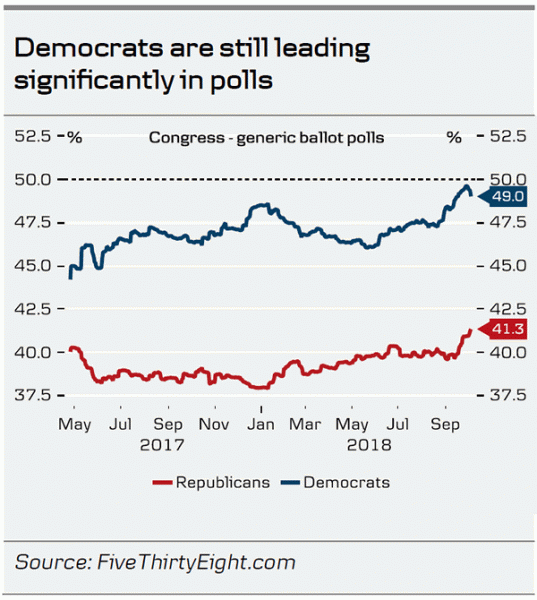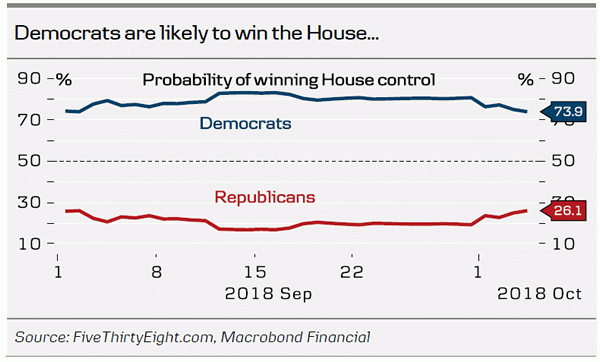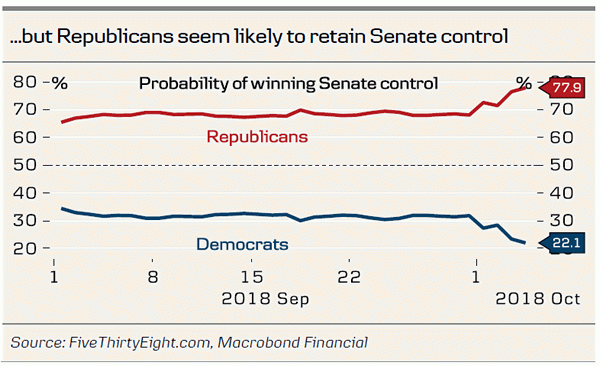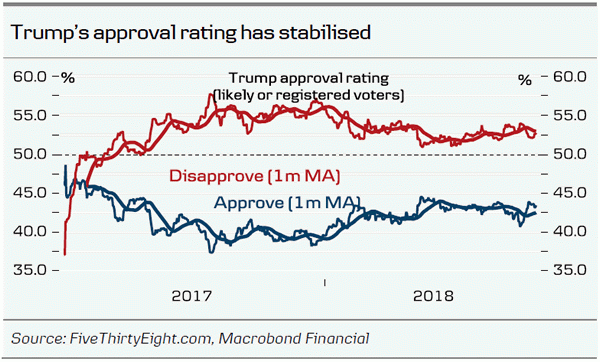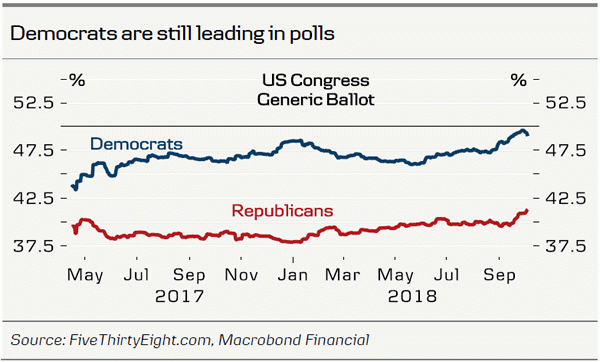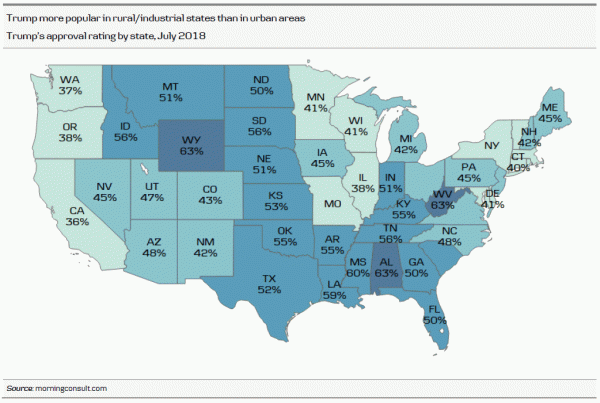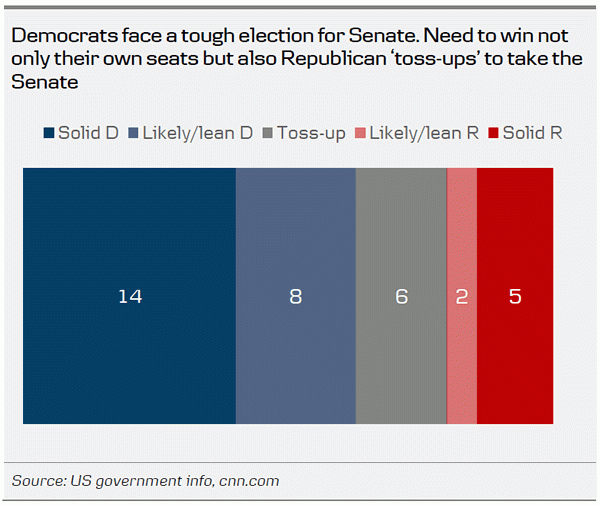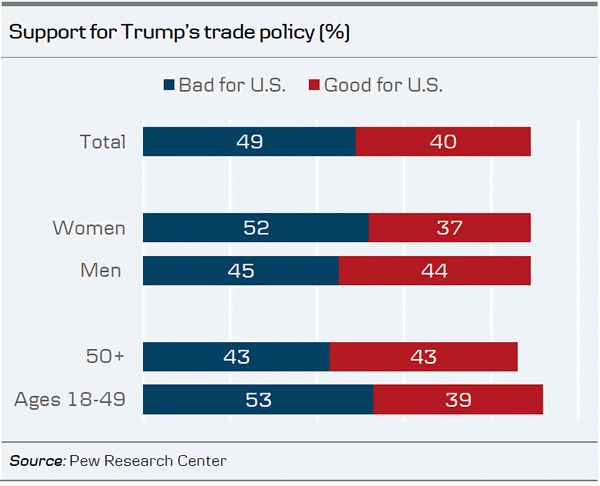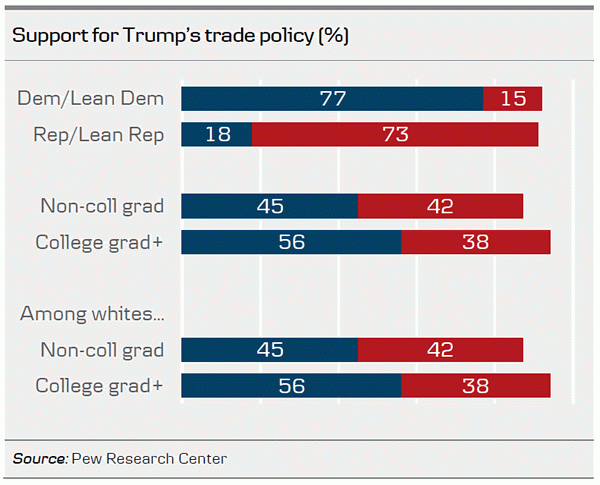Election day on 6 November is drawing closer. In August and September, the generic ballot polls moved in favour of the Democrats – from 47.6% at the beginning of August, to 49.0% at the time of writing. Still, according to FiveThirtyEight, the probability of the Democrats winning control of the House of Representatives has declined to 73.9% (from a peak of 83.1%), as support for the Republicans has also increased (currently at 41.3%). It remains our base case that the Democrats win the majority in the House.
The Democrats still face a tough Senate map, as not many Republican seats are up for election. Some 24 of the 35 of the seats up for election are held by Democrats. Five of them (West Virginia, North Dakota, Missouri and Indiana) are in states where Trump won by 18 percentage points or more. Most of them are considered ‘toss-up’ states. New Jersey’s senator Robert Menendez’s popularity has waned after being indicted on multiple counts of bribery, among others, which makes it even more difficult for the Democrats to gain control of the Senate. Recent surveys show that 53% of voters view him unfavourably. According to FiveThirtyEight, the probability of the Republicans maintaining Senate control has risen to 78% from slightly lower than 70%.
A divided US Congress means that Trump would become a lame duck, who is unable to push his domestic policy agenda through. In our view, the Midterm Elections should have limited implications for markets and the economy, as it would be difficult for the Democrats to roll back Trumponomics even if they won both chambers. The risk is, though, that he becomes even more hawkish on foreign policy and trade policy after the election.
Despite trade tensions, Trump has remained popular among farm state voters. However, the risk for Trump is that his tariffs could have a negative impact on the agricultural sector, which may lead to a decline in his support. This would likely affect the outcome of both the Senate and the House elections in favour of the Democrats. For instance, in Michigan, Wisconsin and Pennsylvania, the number of farm state voters far exceeds Trump’s margin of victory in the Presidential election. That said, there is a large majority of Republican voters who support Trump’s more protectionist trade policy (see page 3). It will also be interesting to see if Trump’s trade deal with Mexico and Canada is well received among voters, as it opens the Canadian dairy market and makes it more expensive/difficult to produce cars in Mexico.
The final Senate vote on Kavanaugh’s confirmation is probably tomorrow, Saturday (simple majority). If all Democrats and two Republicans vote against him, he will not be confirmed. The confirmation process and the allegations against Kavanaugh have overshadowed the election campaign, at least in the national media. We expect that no matter what the outcome is of the confirmation fight, the controversy surrounding Kavanaugh will continue, which may hurt the Republicans’ chances of winning the midterms.

